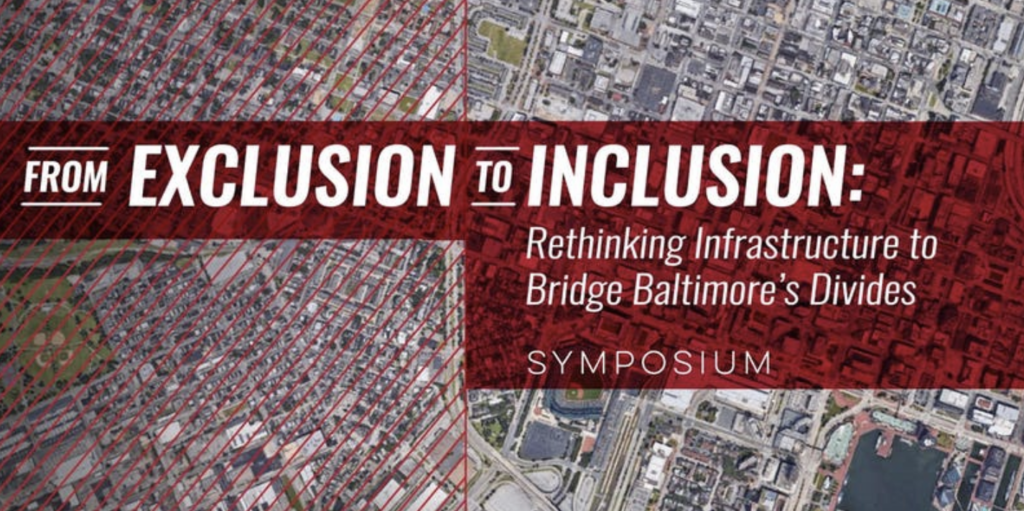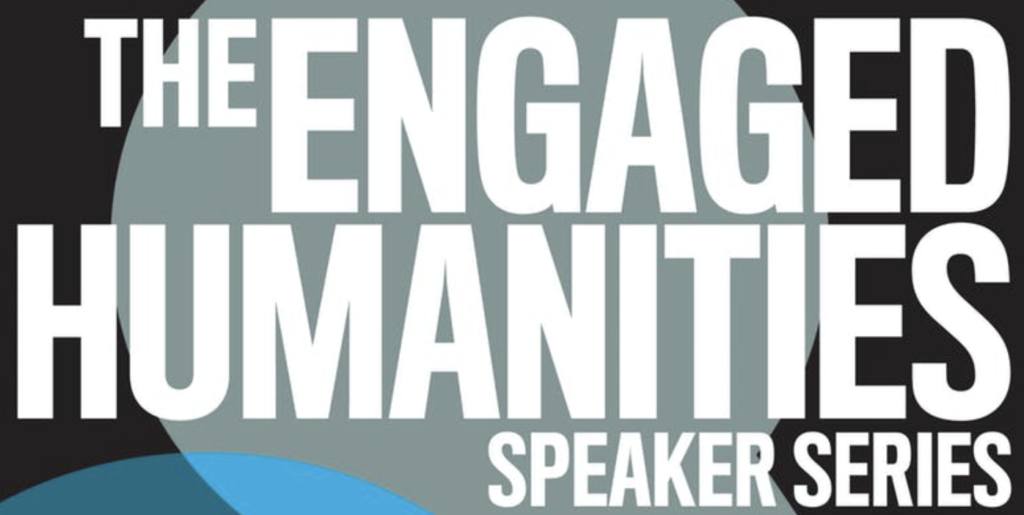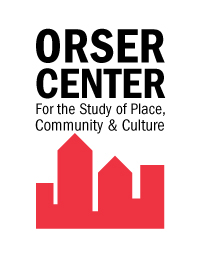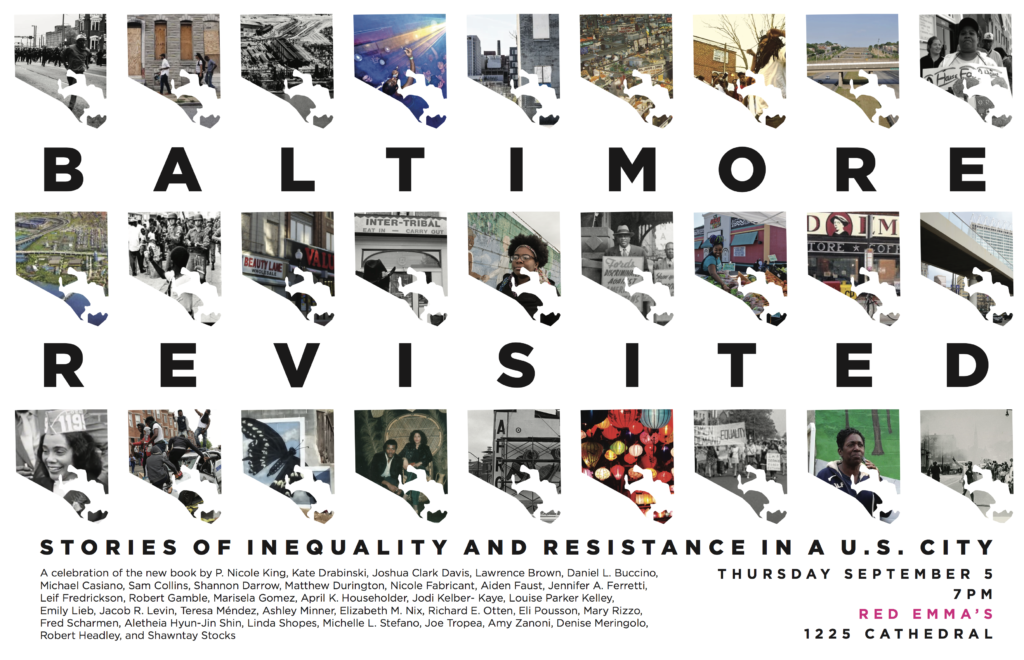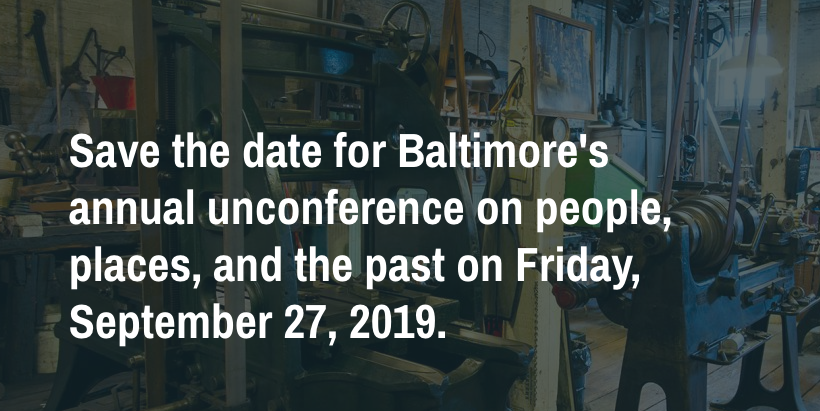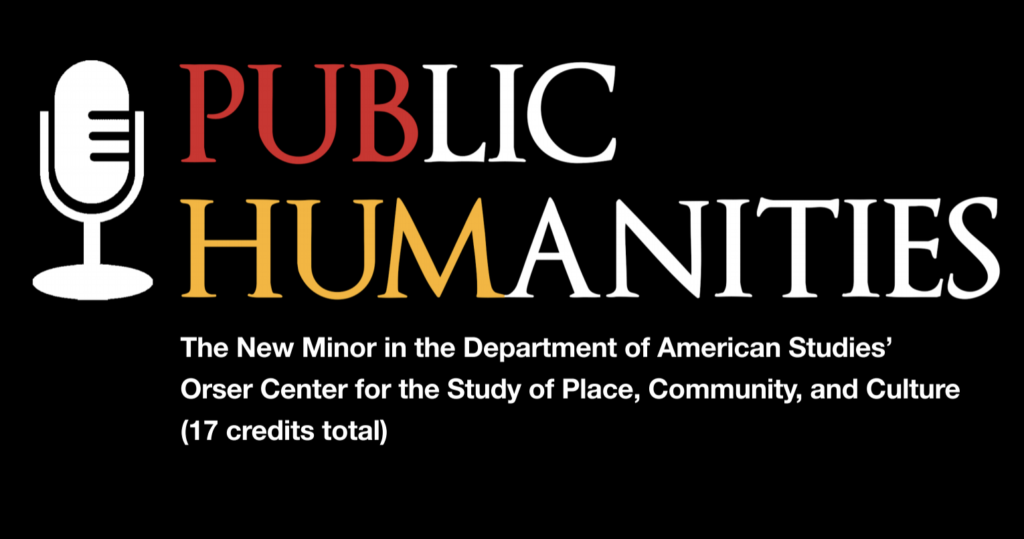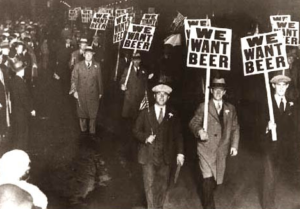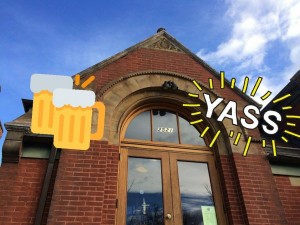Chesapeake American Studies Association CHASA Conference 2015
The 2015 meeting theme “Urban Places, Digital Spaces” will investigate issues of place, space, and power as well as the role of media and digital culture in an urban context.
Registration: http://tinyurl.com/CHASA2015
Click for Directions to UMBC
Parking info: Please park in the Commons Garage (no fee) See the campus map
Note: the entrance to UMBC is currently under construction
CONFERENCE SCHEDULE:
Plenary Panel Discussion on Friday – March 27 from 7-8:30pm in Commons 329
How and why does place matter in an urban context?
The plenary panel will discuss how place matters in an urban context. Panelists will begin with a brief discussion of their intellectual history and current projects. Then the panel will discuss the conference’s central questions: How and why does place matter? What is the role of media and digital culture in urban culture? How does digital culture influence cities? How has the spatial turn in the humanities influenced our understanding of place? How are issues of power and identity grounded in place? What is often neglected in our discussions of the digital in the city? How can we cross the digital divide?
Trevor Muñoz is Associate Director of Maryland Institute for Technology in the Humanities (MITH) as well as Assistant Dean for Digital Humanities Research at the University of Maryland Libraries.
Michelle L. Stefano leads the partnership between UMBC and Maryland Traditions, the folklife program of the Maryland State Arts Council. She divides her time between serving as Visiting Assistant Professor of American Studies at UMBC and the Assistant Director for Maryland Traditions.
D. Watkins is a writer, speaker, and educator who grew up in East Baltimore. His writing has been published widely. Watkins holds a Master’s in Education from Johns Hopkins University and an MFA in Creative Writing from the University of Baltimore. He is an adjunct professor at Coppin University and runs a creative writing workshop at the Baltimore Free School.
* For more info on the panelist see the previous post.
Saturday, March 28: CHASA 2015 Conference
9:30-10:30am: Registrations (with a light breakfast served)
10:30-11:45: Session I
Panel A: Diverse Method of Engaging Places
Responsive Ethnography: Potential Impacts of Digital Storytelling on Ethnographic Research (Kalima Young, American Studies, University of Maryland, College Park)
Digital Cairns in Physical Space (Joe Reinsel, Media Art, University of Michigan, Flint)
El Paso Petrochemical and the Biopolitics of “Public Good” in the Texas Permian Basin (Sarah Stanford-McIntyre, American Studies, College of William & Mary)
Baltimore Brick by Brick: Transforming Blight through Digital Story Telling and Material Community Benefits (Shannon Darrow, Retrofit Baltimore)
Chair: Kelly Quinn, Archives of American Art, Smithsonian
Panel B: Social History in the 21st Century: What Would a “New” Baltimore Book Look Like?
Linda Shopes (Independent historian/consultant) one of the editors of The Baltimore Book
Ed Orser (American Studies, UMBC) contributor to The Baltimore Book
Kate Drabinski (Gender and Women’s Studies, UMBC) teaches The Baltimore Book
Betsy Nix (Legal, Ethical, and Historical Studies, UB) teaches The Baltimore Book
Chair: Nicole King (American Studies, UMBC)
LUNCH 12-1:15pm
Session II 1:15-2:30
Panel A: Explore Baltimore Heritage: Teaching and Telling Stories Go Better Together
Auni Gelles (History, UMBC & Heart of the Civil War Heritage Area)
Sydney Jenkins (Education Programs Assistant, Maryland Historical Society)
Denise Meringolo (Public History, UMBC)
Chair: Eli Pousson (Director of Programming & Outreach, Baltimore Heritage)
Panel B: Western Narratives of Black Deviance: Deforming Urban Neighborhoods in the Baltimore/Washington Corridor
Rosemary Ndubuizu (Women and Gender Studies, Rutgers University)
Robert Thomas Choflet (American Studies and African American Studies, University of Maryland, College Park)
Mary Corbin Sies (American Studies, University of Maryland, College Park)
Chair: La Marr Jurelle Bruce (American Studies, University of Maryland, College Park)
Session III 2:45-4pm
Panel A: Critical Perspectives on Digital Spaces
Creating “Gothic” Spaces: Scene, Style, and Community in the “Goth” Subculture (Leah Bush, American Studies, University of Maryland, College Park)
Urban Markets and the Virtual Rural: Whole Foods Market’s Re-Presentation of Agricultural Production (Allison Lakomski, Cultural Studies, George Mason University)
Deceptive Innovation: The Rhetoric of a Monopoly (Matthew Poissant, American Studies, UMBC)
Anthropology by the Wire: A Multimedia Research Project (Matthew Durington, Anthropology, Towson University)
Chair: Kate Drabinski
Panel 2: Training Session: Omega +Curascape with Eli Pousson, Baltimore Heritage
4:15-5pm Closing remarks & best student paper award
Optional dinner in Baltimore at 6pm (dinner not funded by CHASA)
